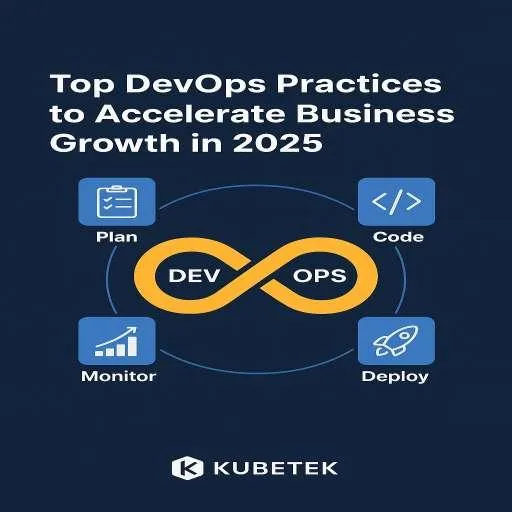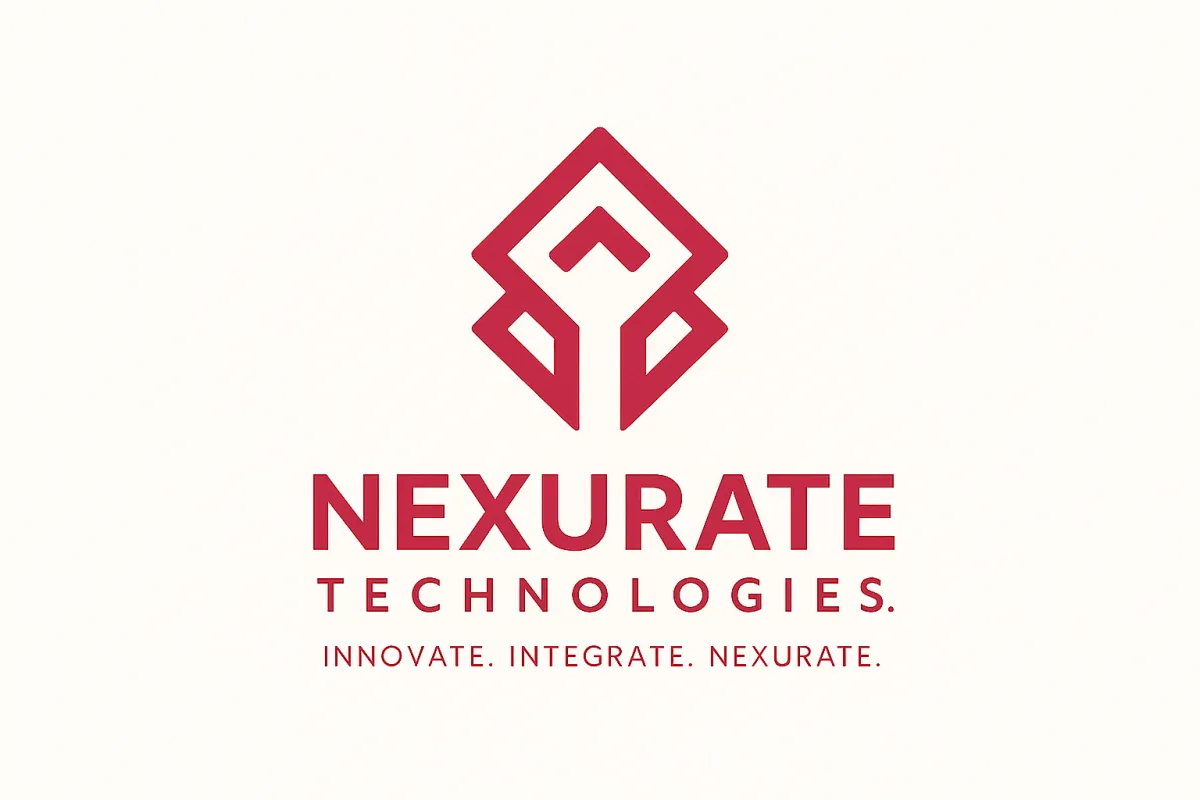India (Toll Free): 0008009192128
US & Canada:+1 5799997599
📢 AI Chat Bot Agents – Nexurate
🚀 Market Demand & Why AI Chatbots Are Critical
In today’s hyper-connected digital world, customers expect instant support anytime, anywhere. Across global markets, enterprises are rapidly adopting AI chatbot solutions to provide real-time, multilingual customer service while reducing support costs.
The global AI chatbot market crossed USD 1 billion in 2023 and is set to nearly double by 2028 with a CAGR above 22%, Adoption of AI chatbot is accelerating, with businesses leveraging chatbots to handle large customer bases, streamline workflows, and enhance engagement across industries such as e-commerce, banking, healthcare, and education.
Globally, over 58% of enterprises have already implemented or tested AI chatbots, and 65% report measurable cost savings and efficiency gains. For companies looking to scale operations, improve customer experience, and stay competitive, AI chatbots are not just a trend — they are a business necessity.
Nexurate’s AI Chatbots are transforming the way businesses engage with customers. Powered by advanced natural language processing and intelligent automation, our chatbots deliver instant, accurate, and contextual responses across web, mobile, and messaging platforms.
AI-Powered Conversations.
👥 Multilingual Chat Support
⚡ 24/7 Instant Assistance.
📊 Smart Automation & Insights.
💡 Cost-Efficient Automation
👉 Nexurate’s AI Chatbots combine intelligent automation with human-like conversations to deliver personalized support 24/7. Turn customer queries into lasting satisfaction.
🌟 What Makes Nexurate's AI Chat Bot Unique?
💬 Smart Chat Conversations – Our AI Chatbot goes beyond scripted replies. It understands context, intent, and tone to deliver natural, human-like conversations. This means your customers feel heard, supported, and valued — leading to stronger engagement and brand loyalty.
🌍 Multilingual Chat Support – Whether your audience is in India, Southeast Asia, or global markets, Nexurate’s chatbot speaks their language. By providing instant multilingual assistance, you eliminate communication barriers, expand reach, and connect with customers worldwide.
⚡ 24/7 Chat Availability – Never miss an opportunity again. With Nexurate’s always-on chatbot, your business is available 24/7 to answer queries, handle support, and even qualify leads — ensuring that every interaction can turn into revenue.
📊 Seamless Customer Experience & Insights – Beyond answering questions, our chatbot streamlines workflows, captures valuable customer data, and provides actionable insights. This helps you optimize support, personalize interactions, and make smarter business decisions that drive growth.
Nexurate AI Chat Bot 👉 Ready to see it in action? Book your free demo today and discover how Nexurate’s AI Chatbot can transform your customer engagement.
Get Free Trial of Nexurate Conversational AI Agent
Our AI understands context, tone, and intent using advanced NLP algorithms. Emotion detection capabilities ensure empathetic responses that match customer mood and needs. Every conversation trains the system to become smarter. Machine learning algorithms continuously improve accuracy, response quality, and customer satisfaction rates.
Blogs

Top Dev Ops Practices to Accelerate Business Growth in 2025
Introduction
The business world is evolving faster than ever, and technology is at the heart of that transformation. Companies today face intense competition, rising customer expectations, and constant demand for innovation. To stay ahead, businesses need faster software delivery, higher reliability, and greater scalability.
That’s where DevOps comes in. DevOps is more than just a buzzword—it’s a cultural and technological shift that unites development and operations teams to achieve faster deployments, smoother collaboration, and reliable systems.
In 2025, adopting DevOps isn’t optional—it’s essential. The right DevOps practices can help you accelerate growth, improve efficiency, and give your business a edge in today’s digital economy. At Kubetek.site, we specialize in helping businesses implement DevOps and cloud strategies that deliver real results.
Let’s dive into the top DevOps practices that will shape success in 2025.

Why DevOps is Crucial for Business Growth in 2025
The global shift to digital-first operations has changed how businesses function. Here’s why DevOps is no longer optional:
Speed to Market: Customers expect new features quickly. DevOps shortens release cycles.
Scalability: Cloud-native DevOps enables seamless scaling as businesses grow.
Resilience: Automation reduces downtime and increases reliability.
Competitive Edge: Businesses with DevOps strategies outperform their peers in efficiency and innovation.
In 2025, adopting DevOps is a business growth strategy, not just a tech decision.
Top DevOps Practices for 2025
1. Continuous Integration (CI) & Continuous Deployment (CD)
CI/CD is the backbone of modern DevOps.
CI (Continuous Integration): Developers frequently merge code into a shared repository, where automated tests ensure stability.
CD (Continuous Deployment): Automates the release process, enabling businesses to deliver features faster and with fewer errors.
Business Impact: Faster releases, fewer bugs, happier customers.
2. Infrastructure as Code (IaC)
IaC turns infrastructure into software. Using tools like Terraform, Ansible, or AWS CloudFormation, teams define infrastructure in code that can be deployed consistently.
Benefits:
Repeatability and consistency.
Faster disaster recovery.
Reduced manual errors.
Business Impact: Lower costs and greater agility.
3. Cloud-Native DevOps
By 2025, most enterprises are moving towards cloud-native environments powered by Kubernetes, Docker, and microservices.
Why It Matters:
Containers make applications portable.
Kubernetes enables scaling on demand.
Cloud-native models reduce infrastructure costs.
Business Impact: Flexible, scalable, cost-efficient IT operations.
4. Automated Testing & Monitoring
Automation ensures speed doesn’t come at the cost of quality. Tools like Jenkins, Selenium, Prometheus, and Grafana provide automated testing, monitoring, and alerts.
Business Impact: Improved system reliability and customer satisfaction.
5. Security Integration (DevSecOps)
Cybersecurity threats are rising. DevSecOps integrates security directly into DevOps pipelines.
Practices Include:
Automated vulnerability scanning.
Security checks in CI/CD.
Policy enforcement with tools like Snyk, Aqua, and HashiCorp Vault.
Business Impact: Reduced risks, better compliance, and secure innovation.
6. Collaboration & Culture Shift
DevOps is not just tools—it’s a mindset. It requires breaking silos between development, operations, and business teams.
Key Elements:
Cross-team collaboration.
Agile methodologies.
Shared responsibility.
Business Impact: Faster decisions, reduced downtime, and higher efficiency.
Business Benefits of Implementing DevOps Best Practices
When businesses adopt DevOps effectively, they experience:
50% faster deployment cycles (source: industry benchmarks).
Reduced downtime through proactive monitoring.
30–40% cost savings via cloud automation.
Improved customer satisfaction with reliable services.
Faster scaling to meet market demand.
In other words, DevOps doesn’t just make IT better—it directly impacts revenue and growth.
Common Challenges in Adopting DevOps (and How to Overcome Them)
Cultural Resistance:
Challenge: Teams resist change.
Solution: Invest in training and leadership buy-in.
Skill Gaps:
Challenge: Lack of expertise in DevOps tools.
Solution: Partner with consulting firms like Kubetek.site to upskill teams.
Toolchain Complexity:
Challenge: Too many overlapping tools.
Solution: Streamline with integrated solutions (GitLab, Azure DevOps).
By addressing these challenges early, businesses can implement DevOps smoothly.
Future Trends in DevOps for 2025 and Beyond
DevOps is still evolving. Here’s what the future holds:
AIOps (AI-powered DevOps): Using AI/ML to predict failures and optimize resources.
GitOps: Managing infrastructure through Git repositories for transparency and control.
Edge Computing Integration: DevOps pipelines extending to IoT and edge devices.
Deeper DevSecOps: Security-first mindset across all operations.
Businesses that embrace these trends will stay competitive in the digital era.
How Kubetek Helps Businesses Scale with DevOps
At Kubetek.site, we help businesses implement cloud and DevOps strategies tailored to their growth goals.
✅ Custom DevOps Solutions – CI/CD pipelines, cloud-native infrastructure, IaC.
✅ Cloud Migration & Optimization – Move smoothly to AWS, Azure, or GCP.
✅ DevSecOps Implementation – Build secure and compliant systems.
✅ Business Scaling Support – Enable companies to grow 100x with automation and efficiency.
Case in point: Many of our clients reduced deployment times from weeks to hours, saving costs while improving customer satisfaction.
Conclusion
The future of business growth lies in DevOps practices that blend speed, security, and scalability. From CI/CD pipelines to DevSecOps, these practices are no longer optional—they’re critical to thriving in 2025.
Businesses that invest in DevOps will enjoy faster innovation, reduced costs, and stronger market positions.
👉 Ready to accelerate your business with DevOps?
Partner with Kubetek.site today and scale your business.
🔎 How Nexurate's AI Chat Bot Agent Works

Discovery & Support Audit
We begin by analyzing your customer support data — identifying the most common queries, peak chat hours, and existing pain points. This ensures the chatbot is tailored to your real business needs.

Intent Mapping & Smart Setup
Next, we define exactly which queries the AI Chatbot will resolve instantly and which should be escalated to a human agent. This balance ensures smooth customer journeys and faster query resolution.

Customization & Seamless Integration
Our chatbot is designed to reflect your brand’s voice and tone, supports localized languages, and integrates seamlessly with your existing CRM, helpdesk, or business systems.

Pilot Launch with Key Metrics
We roll out a pilot with a focused set of customer intents, track performance in real time, and measure metrics like resolution rate, CSAT, and response speed.

Continuous Improvement & Scale
Based on data insights, we refine responses, add new intents, and expand chatbot capabilities. Human agents also benefit by learning from chatbot interactions — improving efficiency across your entire support team.
💡 Smarter Customer Engagement Across Every Industry
🌟 Why Choose Nexurate’s AI Chatbot
📈 Business Impact You Can Expect
💰 25–40% cost savings on support interaction
⚡ 40–60% faster response times for common queries
😀 80–90% CSAT on automated responses
🌍 24/7 multilingual availability to retain, grow customers
🎯 10–30% better lead conversions with chat-bot funnels
🚀 Scalable support to grow without adding headcount
03.
🌍 Personalized, Consistent Experiences
Our chatbot remembers past interactions, understands customer history, and delivers consistent brand voice across every channel.
01.
🎯 Cut Costs Boost Efficiency
By automating FAQs, order tracking, payment queries, and other routine requests, Nexurate reduces live agent handoffs and frees human teams for complex issues.
04.
💡Reach Customers Globally
Support customers in English, regional Indian languages, and global languages like Mandarin, Malay, and Tamil. Localized phrasing ensures comfort and adoption.
02.
📈 Always-On Faster Support
With instant, 24/7 chat availability, customers get answers anytime without waiting. Response times drop by up to 40–60%, improving satisfaction and retention.
05.
📊 Smarter Insights, Growth
Create voice shopping experiences that guide customers through product selection, process orders, track shipments, and handle returns. Our retail AI understands product catalogs, inventory levels, and customer preferences to drive sales and satisfaction.
🔥 Ready to transform your customer support?
📩 Book a free demo today → see how Nexurate’s AI chatbot can reduce costs, raise satisfaction, and scale your operations.
Your customers deserve the best customer service experience.
👉 Don’t wait — Get started today with Nexurate!
Frequently Asked Questions
What is an AI chatbot and why does my business need one?
An AI chatbot is an intelligent customer support tool powered by Natural Language Processing (NLP) and Machine Learning. It understands user intent, responds in real time, and can escalate complex queries to human agents. Businesses use AI chatbots to reduce support costs, provide 24/7 customer service, and improve lead generation and customer satisfaction.
How much money can my business save with Nexurate’s AI chatbot service?
On average, companies save 25–40% on support costs by automating repetitive queries like order tracking, payment issues, and FAQs. This allows human agents to focus on high-value interactions, boosting efficiency and ROI.
Can an AI chatbot increase sales and lead generation?
Yes. Nexurate’s AI chatbot can capture leads, qualify prospects, schedule demos, and guide customers through the sales funnel. Businesses using chatbots report 10–30% higher conversion rates and stronger customer retention.
Which industries benefit most from AI chatbots?
AI chatbots are ideal for e-commerce, retail, fintech, banking, healthcare, education, real estate, hospitality, and travel. Any business with high volumes of repetitive queries, lead generation needs, or 24/7 support requirements can benefit.
How long does it take to deploy Nexurate’s AI chatbot?
A pilot version can go live in 4–6 weeks, depending on integration complexity and number of intents. Full rollout, tuning, and training are completed over 1–3 months for optimal performance.
Can the AI chatbot integrate with my CRM, e-commerce, or helpdesk software?
Yes. Nexurate’s AI chatbot integrates seamlessly with CRM systems, e-commerce platforms, and helpdesk tools, providing real-time, personalized responses based on order history, tickets, and customer profiles.
Will AI chat bots replace human customer support agents?
No. The chatbot handles 70–80% of repetitive queries, while human agents manage complex or sensitive interactions. This approach boosts efficiency, improves customer satisfaction, and allows your team to focus on high-value tasks.
How can I measure the ROI of Nexurate’s AI chatbot service?
We provide analytics dashboards showing cost-per-ticket, deflection rates, resolution time, CSAT scores, and lead conversion metrics. Most clients see positive ROI within 3–6 months, thanks to reduced support costs, faster responses, and improved engagement.
Contact Us
Get in touch with us today to discuss how we can help elevate your brand through expert digital marketing solutions.
Free Growth Strategy Session !
Are you ready to take your Business to the next level? how Nexurate Can Help Get More Leads, Customers, and Sales...

